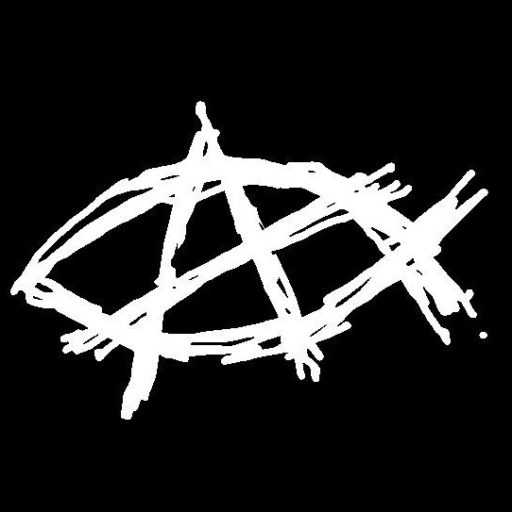
Dropping the A word in public can bring immediate apprehension and derision. Offended parties might leave at first convenience, or engage you and your decision to use such language in public, after all, you might cause a brother to stumble. The A word has it’s value, but there are a few things to consider before letting it fly at the next party, or company function.
In mixed company, the A word will have you labeled as either treasonous or idiotic. Within a Christian circle you could run up against accusations of heresy. Of course, the word in question is anarchy. You might’ve had a similar experience. It’s not far from the mishap of accidentally proclaiming the decriminalization of heroin because you were a little too excited to meet a fellow self-professed libertarian, only to find they were only slightly supporting a legalization of marijuana on strict medical purposes only.
There are more palatable phrases to use, like Libertarian & Voluntaryist, that won’t bring such vitriol. As well the phrases not only bring the opportunity for a peaceful conversation but they also bring opportunity to elaborate on principles we find extremely important.
Libertarianism
When asked about Libertariansm, you can quickly bring in a buzzword that Conservatives will quickly appreciate. Though they do not live out the ideals of “liberty” in the libertarian principles, or even the assumed manner of their beloved “founding fathers,” but they think they do and this is usually well received.
Voluntaryism
Voluntaryism presents the opportunity to Progressives, that fancy themselves champions for human rights and Civil Liberties, but act completely contrary when they spout Socialist dogma, the repression of speech, the support of redistribution, and the rejection of personal responsibilities.
Inconsistentarianism
Both groups can be hypocritical and hostile. Their desire for authoritarian power, to make society in their moral image is fraught with inconsistency. However, They can both find common ground in disapproval of the A word. To further generalize these groups, liberty loving Conservatives imagine Anarchy exclusively as chaos. In the present its bandanna bearing Antifa rioters, while the eventual anarchic dystopia is a Mad Max wasteland. The progressive left might even have a twinge of appreciation for the term Anarchist, as they too imagine the militant arm of their ideology. However, upon explaining the true principles behind the A word, they would quickly label that position no different than their enemy the Right.
Anarchism
It doesn’t help that various dictionaries will list the chaotic characterization among the possible definitions, but breaking down the origin of the root words will let us know exactly why it is still a viable and a valuable term. This is called etymology. Anarchy is made up of “the ancient Greek ἀναρχία (anarchia), which combines ἀ (a), “not, without” and ἀρχή (arkhi), “ruler, leader, authority.” Unbiasedly, anarchy simply means no ruler. Realistically though, every author, philosopher, and insurrectionist has sought to further define and personalize the A word. However, regardless of any translation, to stay true to its stateless roots, anarchism must mean nonviolence. “Briefly, the State is that organization in society which attempts to maintain a monopoly of the use of force and violence in a given territorial area,” observes Murray Rothbard in The Anatomy of the State. This rules out any characterizations, positive or negative, of the violent thugs. The implication now, if you rule an area of any size though violence or the threat thereof, you are now the ruler and therefor cannot be without a ruler as anarchy technically requires.
In today’s polarized political climate the A word can serve a new function. First, anarchy is alarming to everyone for the reasons mentioned previously, so you’re guaranteed to get someone’s attention. Second, now with your audience’s attention, you can explain why anarchism is in line with the virtues associated with their world view, but not the violence they think is needed for its realization. And finally, now you have the moral argument on your side to truly define liberty or voluntary. Liberty defined, from Ron Paul’s book of the same name, “means to exercise human rights in any manner a person chooses so long as it does not interfere with the exercise of the rights of others.” Voluntaryism is defined as “the doctrine that relations among people should be by mutual consent, or not at all.”
Anyone not currently profiting off the compulsion of others will find these accurate definitions agreeable. There is typically some indoctrination to get passed, or accepted contradictions to expose, but every person will agree to that non-coercive relationships are ideal and moral. This is especially true for the Christian. It should go without saying that an objective morality is a core tenet of the Christian faith. The problem however, is that Christians of any stripe and denomination will fall into the previously outlined political ideologies and therefore the inevitable inconsistencies.
Many non-theist based anarchists will use the term “No God, No Rulers” to define anarchism. However, anarchism is strictly a horizontal relationship between man and man. There is nothing in the etymology of anarchy that includes theos (θεός “god”), from which we get atheist. The charge that anarchism and Christianity as incompatible, from atheist or theist, is incorrect. Christian Anarchists have the unique perspective of the horizontal relationship between man and man, and the vertical relationship between God and man, which culminates in No king but Christ.
___________________


 Find it on
Find it on 

This article really does inadvertently why the use of Volutyrist is best serving the cause. Anarchist, while implying no rulers, doesn’t shut down the initiation of force or fraud completely. Rarely does one see a thief as a “ruler” in the sense you describe. This is the same problem Ayn Rand smashed up against when she used “selfish” as her antidote to altruism/collectivism… when she should have coined the word “selfist” to describe the type of maverick mustang she held in high esteem.